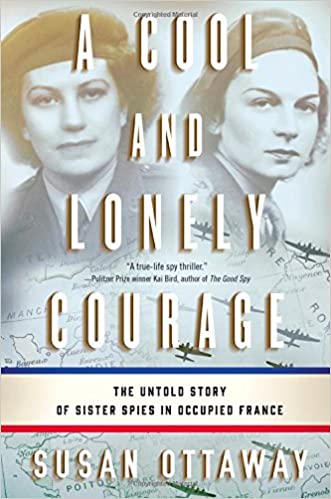Lane struggles with PTSD, but she discovers that her training, her ability to observe and be logical, and her natural empathy help her to solve the mysteries she becomes involved with, which in turn helps her to find balance in post-war life. (It is unfortunate that her intelligence and linguistic abilities make her very attractive to both sides in the new world of the Cold War.)
But perhaps some of you are wondering if women really did drop into France out of airplanes. I was stunned when I first learned of it myself…I still can’t imagine what kind of courage this would take. But there was a war on, and everybody was pressed into service. Men at the front, women out of their kitchens and into factories and farms. And in the case of a few women, often educated or multi-lingual women who could pass as French, or German moved right into the heat of secrecy, risk and danger. Many worked for SOE, the Special Operations Executive, a highly secretive organization that few knew about at the time. For many of the women, this is only beginning to become known, more than 70 years later.
Women were assigned to deliver messages, operate radios, connect with the French resistance and provide training with radios, new weapons and so on. They often had weapons training. Some women worked right inside German lines helping prisoners to escape, and using their language and their personalities to survive. Many did not survive. If they were discovered they were often arrested, tortured and executed. It is chilling to read that many were executed as young as 22 or 23.
Those who survived often disappeared into obscurity, back to domestic lives, to some attempt at normalcy. I thought the story of Eileen Dearne was interesting. Her job was to drop into France and deliver messages and organize weapons drops. She was actually captured, tortured and imprisoned, but managed to escape. After the war she was awarded the Croix de Guerre by the French and an MBE by the British. In the next many years, she struggled with what we would recognize today as PTSD, going from doctor to doctor and living in bedsits. It was only after she died in 2010, when her papers were discovered, that people realized what she had done.

An excellent book about her and her sister is A Cool And Lonely Courage; the untold story of sister spies in occupied France by Susan Ottaway, published in 2014. Another book of interest is The Women Who Spied For Britain, by Robyn Walker.